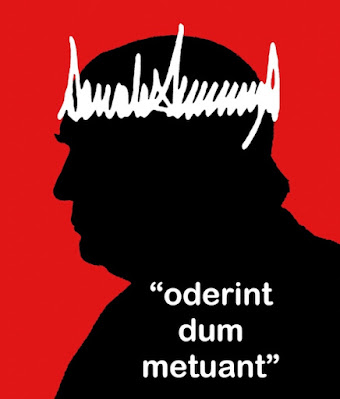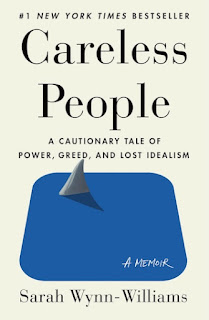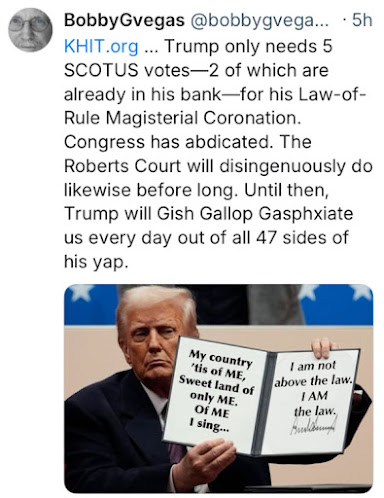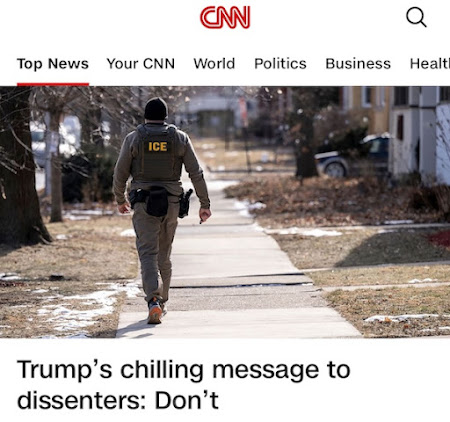I finished Faiz's excellent, disturbing book on Elon Musk. Supremely curious in this time of hyper-aggressive Trumpian mass deportations is the following:
Below, the original WaPo lengthy reporting headline. I seriously doubt that they'd libel the wealthiest man on the planet.
Given that Elon and his DOGE bros have gained more than 3 months of pretty much unmonitored access to large swaths of federal data across a breadth of agencies, one would hardly be surprised to learn that his fake U.S. "student visa" details have by now conveniently hit "the bit bucket."
PALO ALTO, Calif. [WaPo, Updated October 27, 2024]— Long before he became one of Donald Trump’s biggest donors and campaign surrogates, South African-born Elon Musk worked illegally in the United States as he launched his entrepreneurial career after ditching a graduate studies program in California, according to former business associates, court records and company documents obtained by The Washington Post.
Musk in recent months has amplified the Republican presidential candidate’s claims that “open borders” and undocumented immigrants are destroying America, broadcasting those views to more than 200 million followers on the site formerly known as Twitter, which Musk bought in 2022 and later renamed X.
What Musk has not publicly disclosed is that he did not have the legal right to work while building the company that became Zip2, which sold for about $300 million in 1999. It was Musk’s steppingstone to Tesla and the other ventures that have made him the world’s wealthiest person — and arguably America’s most successful immigrant.
Musk and his brother, Kimbal, have often described their immigrant journey in romantic terms, as a time of personal austerity, undeterred ambition and a willingness to flout conventions. Musk arrived in Palo Alto in 1995 for a graduate degree program at Stanford University but never enrolled in courses, working instead on his start-up.
Leaving school left Musk without a legal basis to remain in the United States, according to legal experts...
The Dystopian Duo of Donald "I-Now-Run-The-World" Trump and Elon "Alexander-the-Great-Reincarnate" Musk are nothing less than The WWE Bruise Brothers of democracy. Minimally.
They both regard themselves as Visionary Geniuses, irascibly tolerating the rest of us and our outdated, ineffective socioeconomic norms.
___
While I really like Hubris Maximus and recommend it without reservation (acutely timely), I confess to being a bit perplexed and disappointed by the author's failing to cite Kara Swisher.
The world’s richest man and most famous living tech entrepreneur had to be fucking kidding. But Elon Musk was not joking when he emailed me on October 17, 2022, with the subject line: “You’re an asshole.”I began citing Faiz's book on Elon a couple of posts ago.
Just a week earlier, Musk had been friendly toward me, as was typical. In fact, he’d asked me for my thoughts about Twitter, the beleaguered service he was forced to buy after pretending that an ironclad contract was not made of iron. And despite engaging in the business equivalent of a toddler tantrum after agreeing to overpay for the company without contingencies, Musk had won the prize. Well, to be more accurate, the booby prize. While hugely popular and addictive to politicians, the media, and promiscuous id-brains like Musk, Twitter had long been the little tech engine that couldn’t.
What was so weird about Musk labeling me “an asshole” was that—unlike many critics—I had taken a fair wait-and-see attitude about his purchase of Twitter. I had covered many deals that had some element of bullshit introduced in the midst of the battle, such as Microsoft’s failed attempt to buy Yahoo, and this seemed no different. Musk filed a lawsuit in Delaware’s Court of Chancery to challenge the deal he’d agreed to, but just before his deposition, he balked. In the end, Musk had to fork over $44 billion for Twitter and no amount of rage tweeting was going to change that.
So, it’s true: I welcomed Musk’s takeover. I’d covered Twitter since it debuted in 2006, and for most of its history it had been a woefully underperforming business. A lot of the blame for this falls on the bony shoulders of cofounder Jack Dorsey. At the time of Musk’s offer, Dorsey was a part-time CEO whose attention was divided by his work at the innovative payments company Square (later called Block). A genuine visionary, Dorsey had started to foist his personal habits on his employees, like opening a company meeting with a community meditation. He also decided that he was so smart he could run two companies at once. Narrator: He could not run two companies at once.
While heads nodded publicly about how amazing he was to pull it off, privately most people decried his tone-deaf arrogance to me. I agreed. Typically, one or both businesses suffered, and only tech CEOs of a certain type considered themselves so important as to be irreplaceable. But, as my grandmother correctly noted, the graveyards are full of once-busy people.
And whistling past the cemetery is where Twitter always seemed to be, barely making it as a business, with its stock mainly hovering around its IPO offering. Still, it had created a splash well beyond its small size. Despite a tiny $5 billion in annual revenue, Twitter’s influence was often compared to Meta’s, which pulled in $116 billion in 2022. Twitter dominated the zeitgeist, populated by a coterie of celebrities, politicians, and media heavyweights all vying to be the dunk master of the platform. That title, eventually, went hands down to @realDonaldTrump, who used Twitter as a megaphone to become the world’s biggest troll.
But the real story of Twitter was not in the noisy heat it generated, but in colder and harder math. The premise of Twitter was dead simple: A registered user logs in via the Internet or a mobile phone and answers the question “What are you doing?” in 140 characters or fewer. It was immediately clear when I signed on in 2007 that its lightweight design and newsy bent would soon make it the buzziest product in Silicon Valley. It was also the glitchiest. Its revenue, user growth, and most important of all, stock price all remained in the doldrums. The basic product remained stuck, too. Early Twitter looked an awful lot like current Twitter, where doubling the number of allowed characters counted as innovation. These drags combined with a persistent drama among its founders meant the company never realized its potential. Actually, it was a minor miracle that the bird stayed aloft. While Twitter had received acquisition interest over the years, negotiations always ended in tears once potential buyers realized the company was a hot mess from both a tech and product perspective...
Swisher, Kara. Burn Book: A Tech Love Story (Ch 13, pp. 215-217). (Function). Kindle Edition
Lots more shortly. Stay tuned.
MAYDAY UPDATE
Too much going on. Elon Musk-Donald Trump summary: They each regard themselves as Existential Visionary Genius Leaders exempt from any sort of frictional process norms that bind us lesser mortals (up to and inclusive of law).
Per Elon et al:
Recall "Effective Altruism," anyone?


































